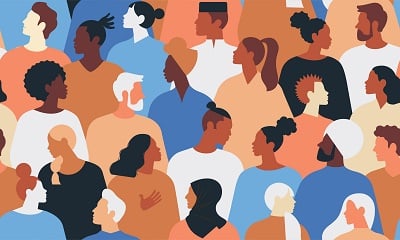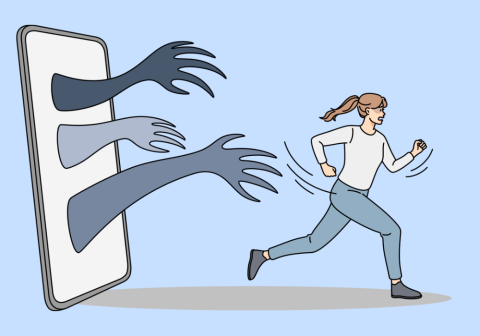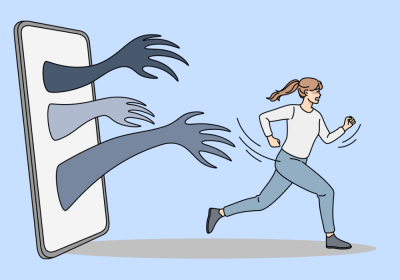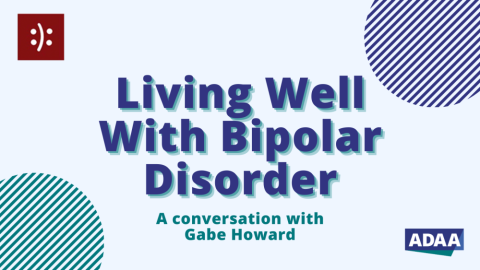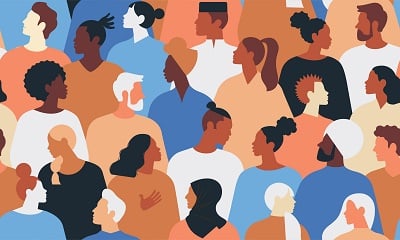
Why BIPOC Mental Health Matters
The BIPOC community is identified as members of the Black, Indigenous, People of Color and other marginalized groups. Collectively, these groups often experience increased levels of mental health struggles due to the compounding impacts of racial trauma, socioeconomic gaps, and a lack of representation and access to care within the mental health industry. While People of Color (POC) have rates of mental health disorders similar to Whites, these disorders are more likely to last longer and result in more significant disability for POC (1). Particularly, in communities of color, mental illnesses often go untreated due to a lack of insurance coverage and health equity. As ADAA remains committed to highlighting diversity and BIPOC-specific resources, we encourage you to share your mental health stories as a member of the BIPOC community and learn about the experiences of others. Find out how to share your story with ADAA.
A Message from ADAA
ADAA remains committed to highlighting the mental health experiences of BIPOC communities through the promotion of professional research and community-focused engagement. This July, in honor of BIPOC Mental Health Awareness Month and its commitment to DEIA, ADAA wants to acknowledge and shed light on the mental health of communities of color. We recognize the serious health inequities and disparities that impact BIPOC communities, and we are using our platform to promote new voice and perspectives in research and education to increase BIPOC representation in mental health awareness and treatment. ADAA encourages you to join us and use the month of July to learn more about the mental health experiences of BIPOC communities.
DEI Commitment Statement from ADAA
Anxiety and Depression Association of America (ADAA) is committed to highlighting diversity, equity and inclusion as a core organizational value to promote BIPOC-specific mental health research and professionals. As an organization that has a large global impact and a diverse professional network, we acknowledge racial injustices and societal inequalities have caused BIPOC communities harm. The impact of these inequalities coupled with health disparities has helped us affirm the importance of health equity throughout our organization and its resources. ADAA recognizes that combatting societal, organizational and health inequalities is an ongoing commitment. Therefore, we remain committed to highlighting and encouraging BIPOC-specific mental health research and professionals throughout our organization. As such, we support racial justice and embrace diversity, equity and inclusion as core values.
ADAA's Inclusive Language Guidelines (2022).
Finding Support for Your Community
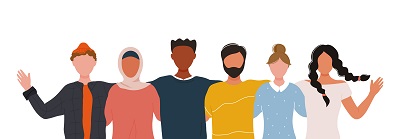
ADAA has crafted individual pages for each BIPOC community to address the specific mental health struggles that present themselves in these groups. Check out the links below to find support, infographics and additional resources that can help members of the community better understand their own mental health journey.
- Asian American and Pacific Islander Community
- Black and African American Community
- Hispanic/ Latiné Community
- LGBTQ+ Community
- Native and Indigenous Community
Finding a BIPOC Therapist
BIPOC communities continue to work to ensure that there is progress and more representation within the mental health industry. At the same time, there are still some culturally responsive resources available that are offered specifically for BIPOC communities.
Below are websites where you can find mental health providers catered to BIPOC communities:
- BIPOC therapists
- Color of Trauma and Healing- BIPOC Providers
- Inclusive Therapists
- Melanin and Mental Health- Therapist
- Multicultural Counselors- Directory
- Therapy In Color- Directory
- Women of Color Wellness- BIPOC Therapists
BIPOC Specific Resources from the ADAA Community
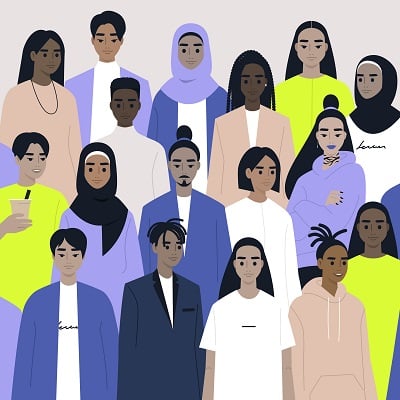
Blogs and Videos
- BIPOC Mental Health Trends and Disparities
- Redefine and Unlearn: BIPOC Youth Destigmatize Mental Health in their Community
- Celebrating BIPOC Mental Health Trailblazers
- Mental Health in the Black Community, ADAA video. Dr. Atasha Jordan
Stories of Triumph
- Your “Strong” Friends Need Checking in on Too: Despair and High Functioning Depression, Tiara Johnson
- Celebrating Progress: Why the Celebration of Juneteenth Matters to the Black Community, Tiara Johnson
Infographics
- Four Easy Mental Health Self-Care Tips for the BIPOC Community
- Importance of Therapy in BIPOC Communities
- Questions to Ask When Selecting a Therapist
- Workplace Wellness Importance
- Types of Microaggressions in the Workplace
Additional Mental Health Resources
- Mental Health Education
- Clinicians of Color
- The Brown Boi Project
- Fireweed Collective
- Immigration Equality
- LGBTQ Psychotherapist of Color
- Nacional Queer & Trans Red de Terapeutas de Color
- National Center for PTSD
- Project LETS
- Rest for Resistance
- Therapy in Color
Trending Articles
- How some therapists are helping patients heal by tackling structural racism, NPR,2022
- The Benefits of a Therapist Who Understands Your Cultural Background, Jed Foundation, 2022
- How to Find a Culturally Competent Therapist, Jed Foundation, 2022
- BIPOC Mental Health Fact Sheet, 2022
- BIPOC Mental Health Collective-Blogs
- Decolonizing Your Wellness, Psychology Today, 2022
- How Communities Can Address BIPOC Mental Health Needs, Psychology Today, 2021
- When Will Therapist Stop Dismissing Racial Trauma 2022
References
- Gateway to Mental Health Services. rtor.org. BLACK, INDIGENOUS, AND PEOPLE OF COLOR (BIPOC) MENTAL HEALTH FACT SHEET. https://www.rtor.org/bipoc-mental-health-equity-fact-sheet/?gclid=Cj0KCQjw0PWRBhDKARIsAPKHFGg_4CGWYdPYQnW5uMNzHPJAAnGsAIPO1CQH3cZf2FwWJfCKFD0NOzYaAtbzEALw_wcB
